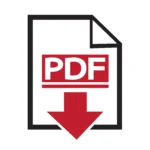AUTHOR:
Vira Burdiak
ABSTRACT:
The functioning of a modern democratic state is impossible without observing certain electoral cycles, holding free elections, maintaining carefully thought-out electoral procedures, and sending new messages to voters that affect the formation of public electoral moods. The most important trend in this process is the search for electoral systems that fully take into account the will of citizens and ensure adequate representation of their interests in state bodies. The author proves that during the recent presidential and parliamentary election campaigns that took place in the Republic of Bulgaria, new electoral preferences were quite unexpected for the state. The Bulgarian Parliament quickly shifted to a new paradigm of political rhetoric without changing its structure. “Pro-Euro-Atlantic” parties (the Reformist Bloc, DOST) did not enter the Parliament, and those that are represented in the National Assembly (GERB, BSP, DPS) quite painlessly reoriented to “patriotic” or “state-oriented” messages. The nationalist parties with their new messages that most correspond to the desired new situation, managed to understand the situation in time: they united and were able to get seats in the Government in a new form. They said goodbye to their previous role in Bulgarian politics and became a part of the respectable participants in the political process.
DOWNLOAD FULL ARTICLE:

